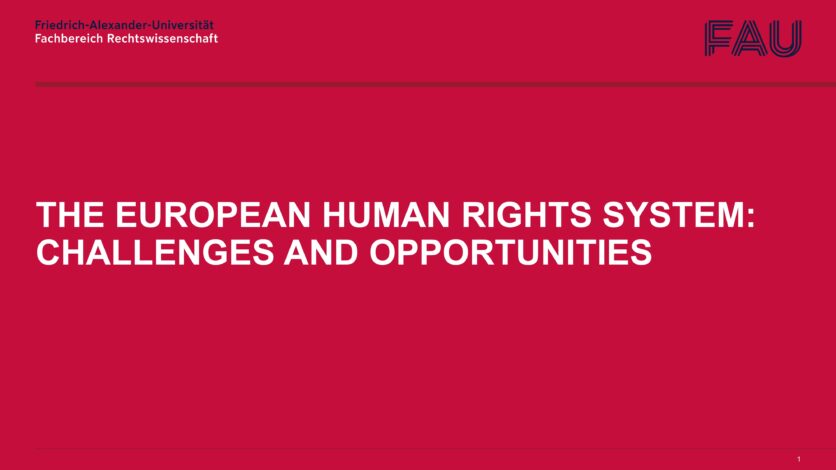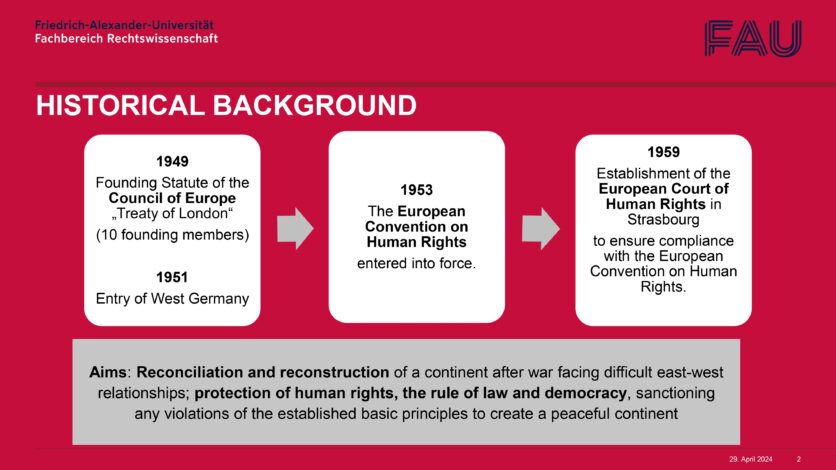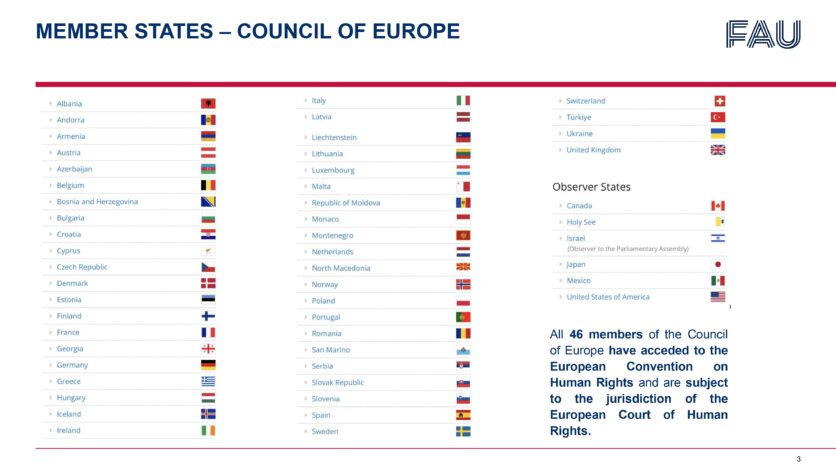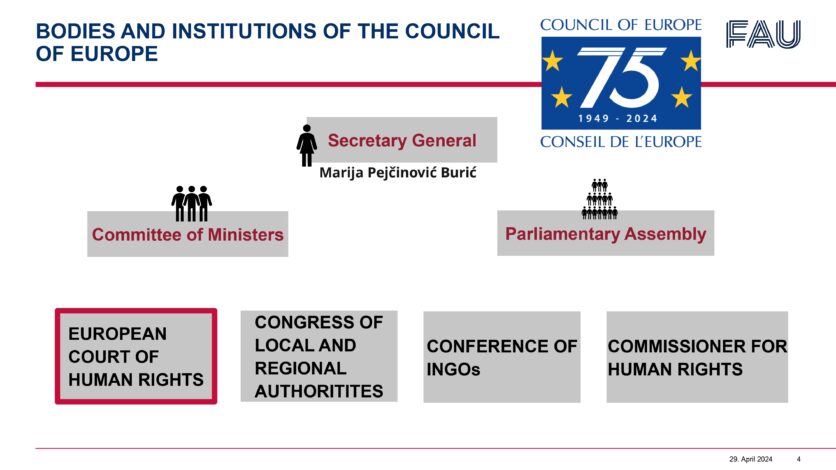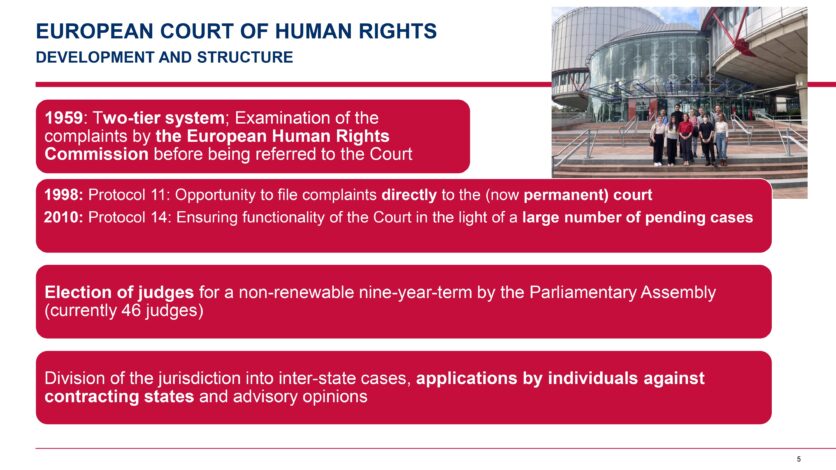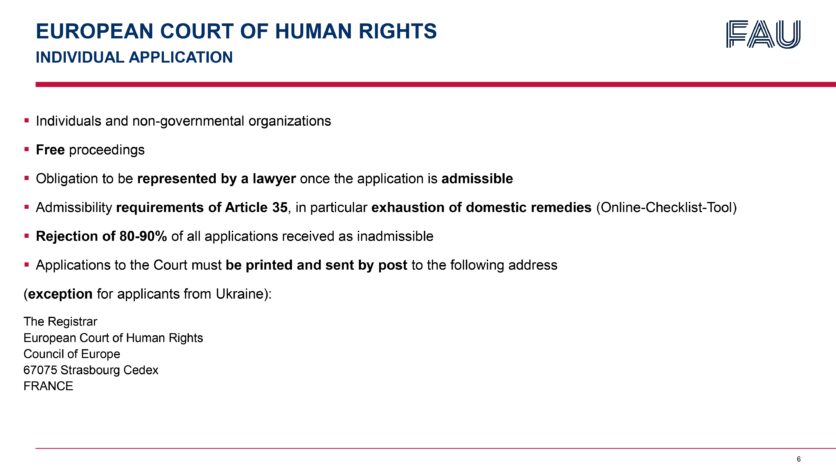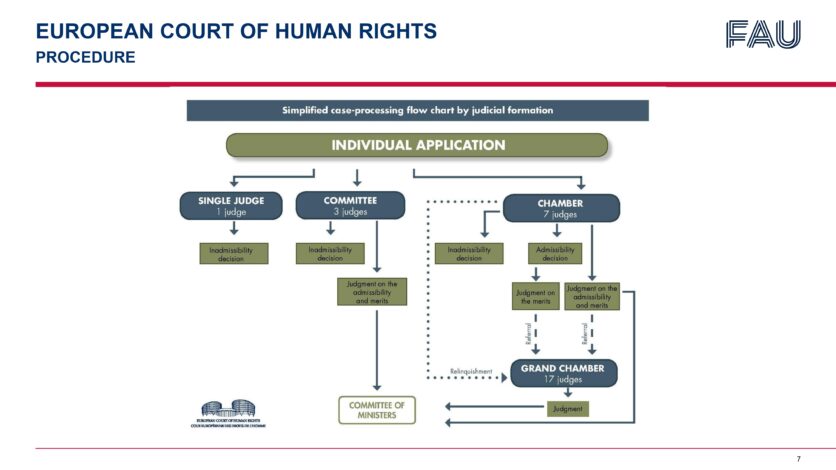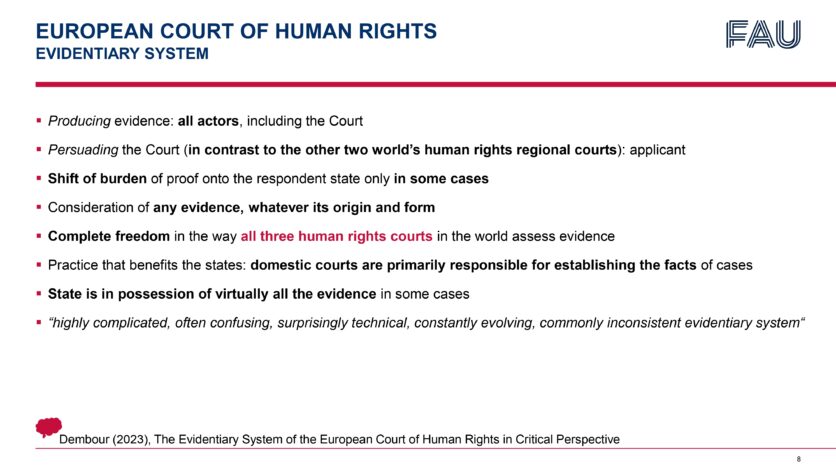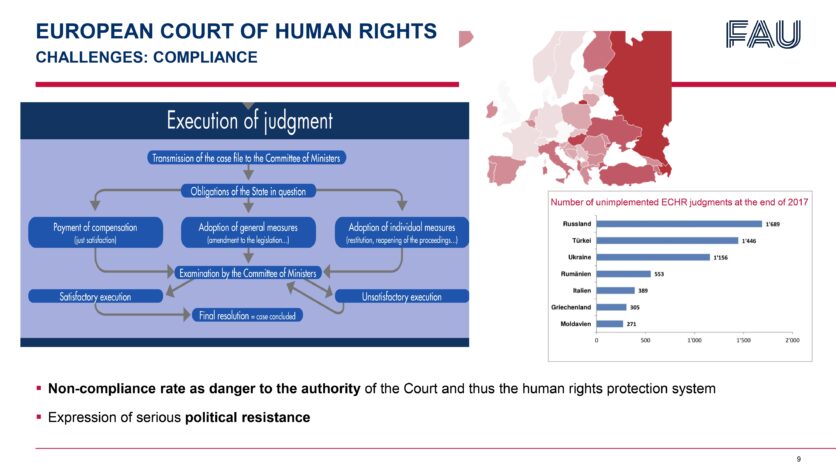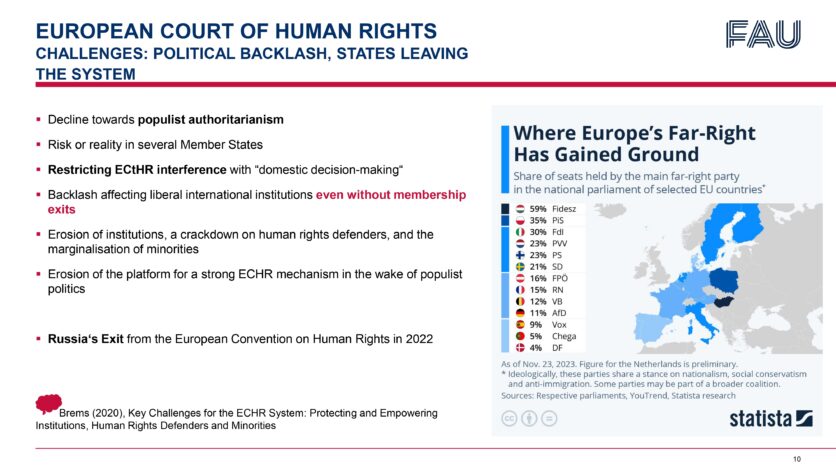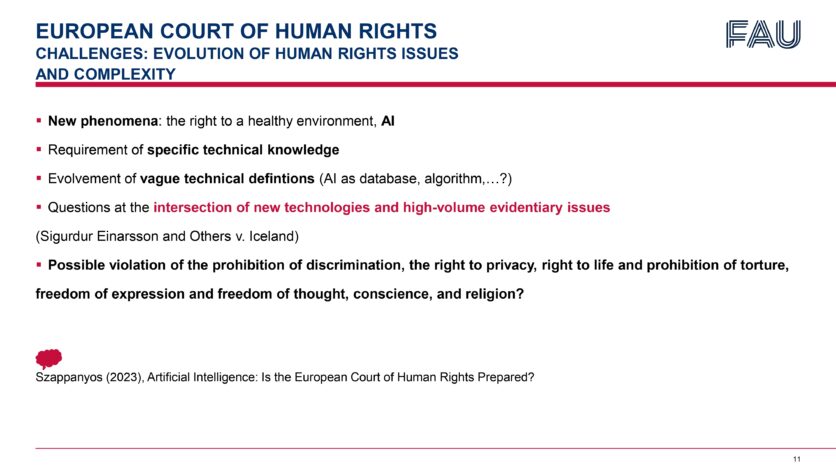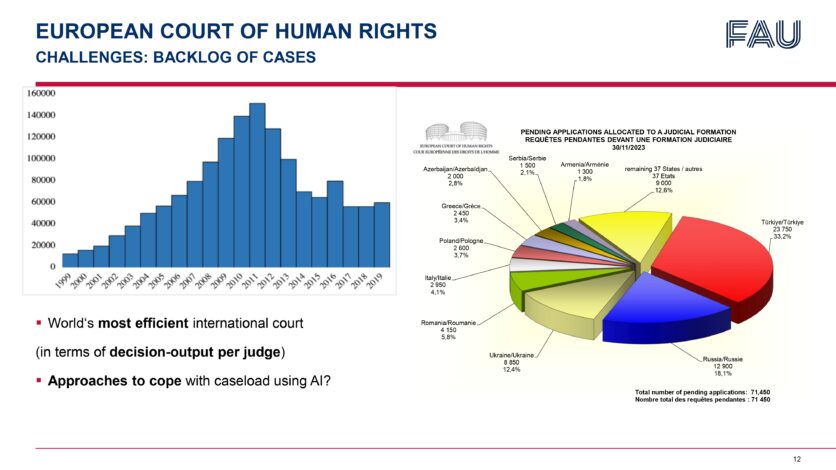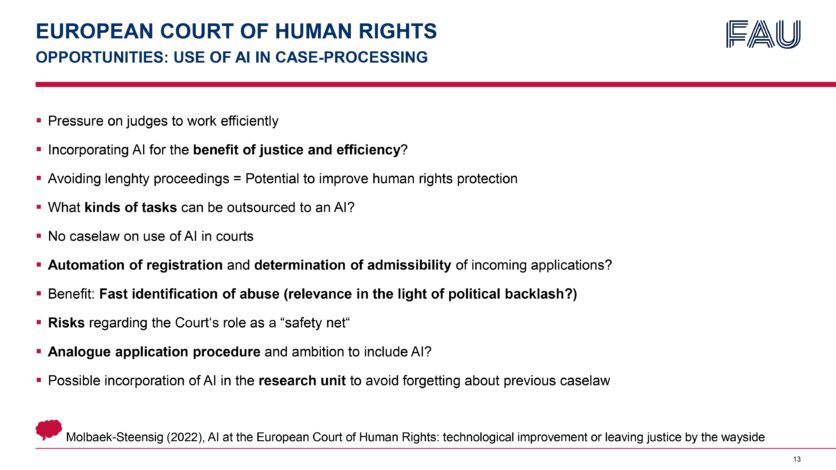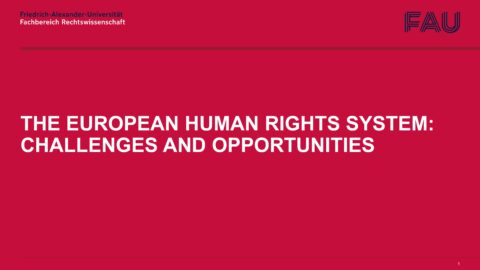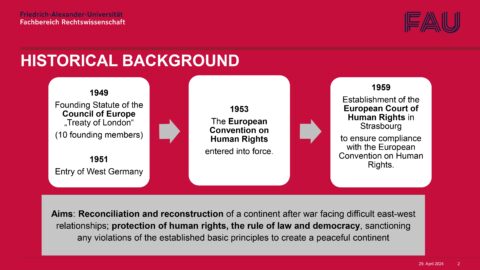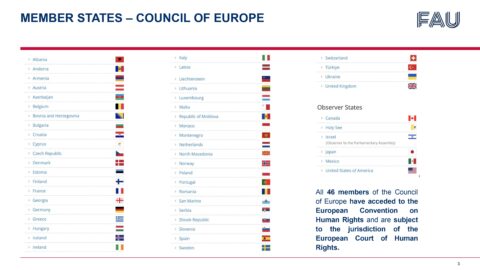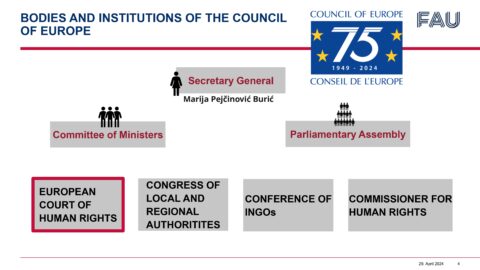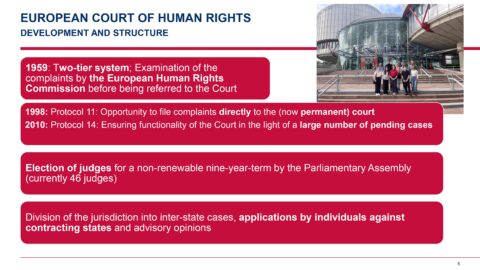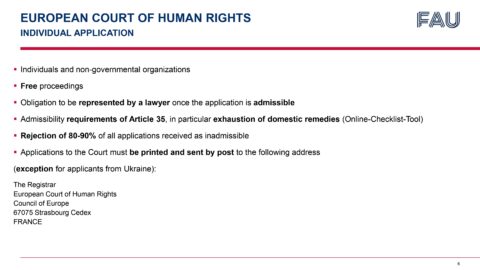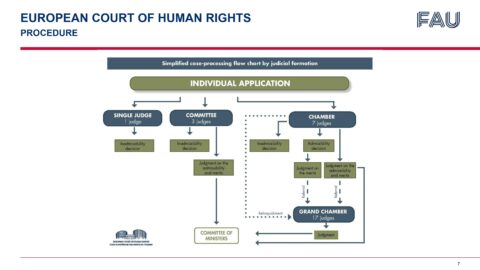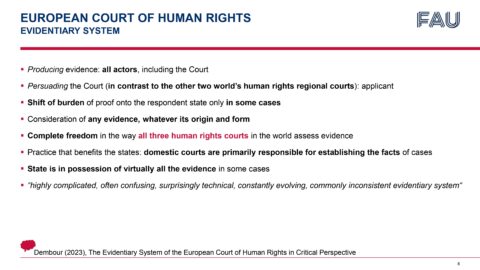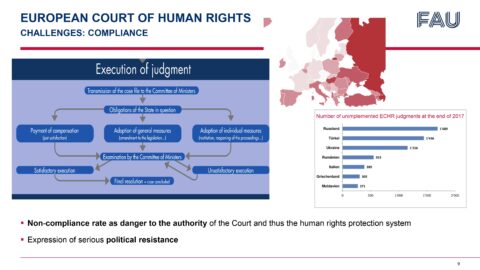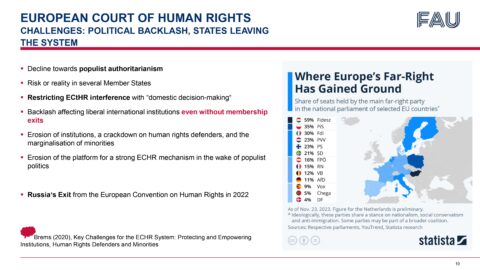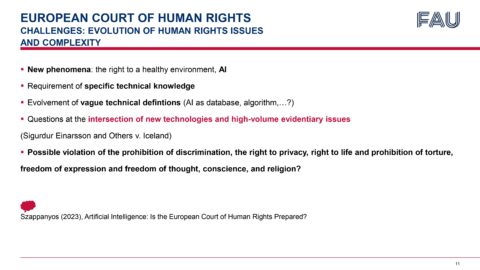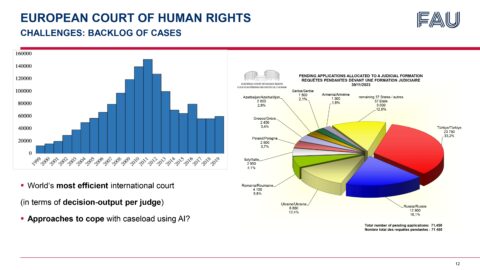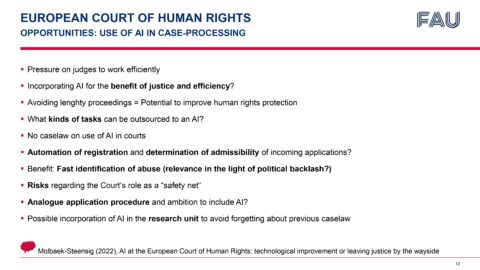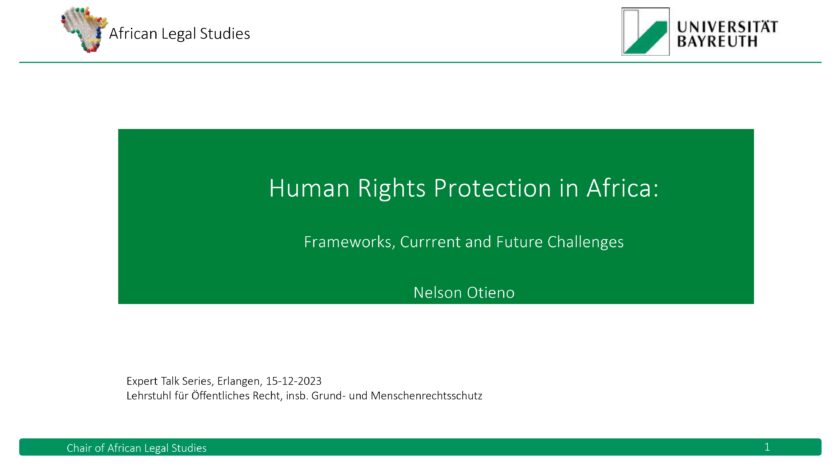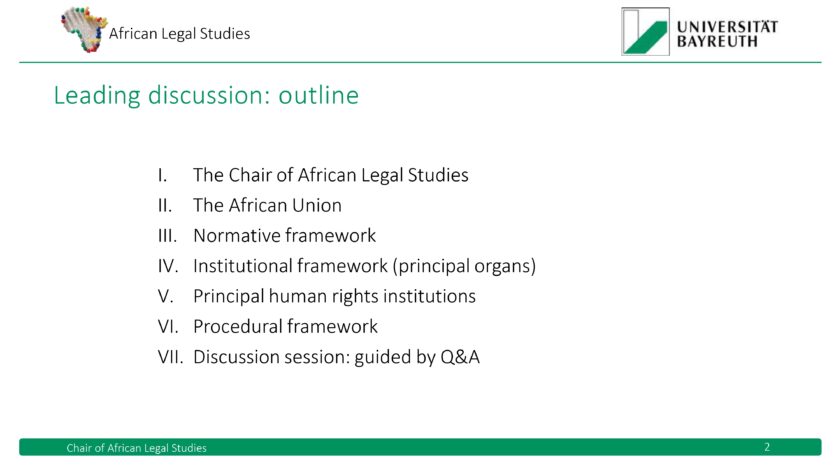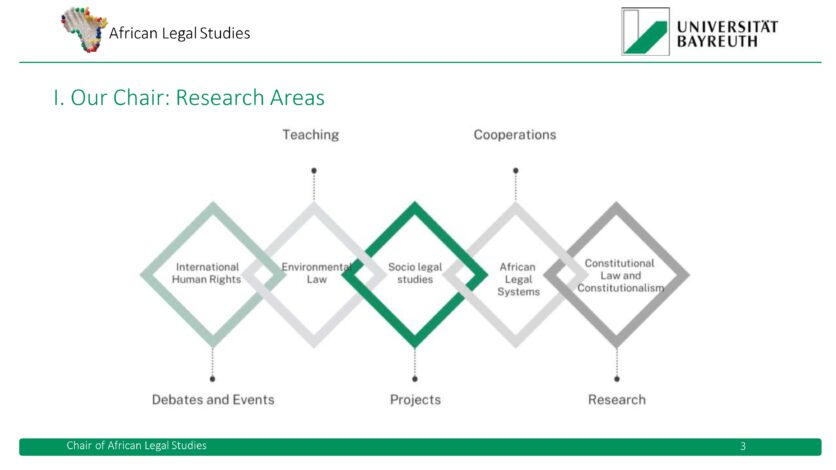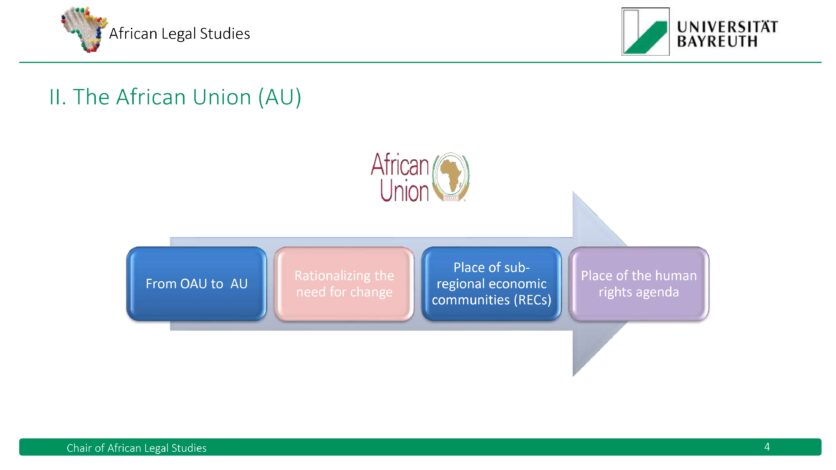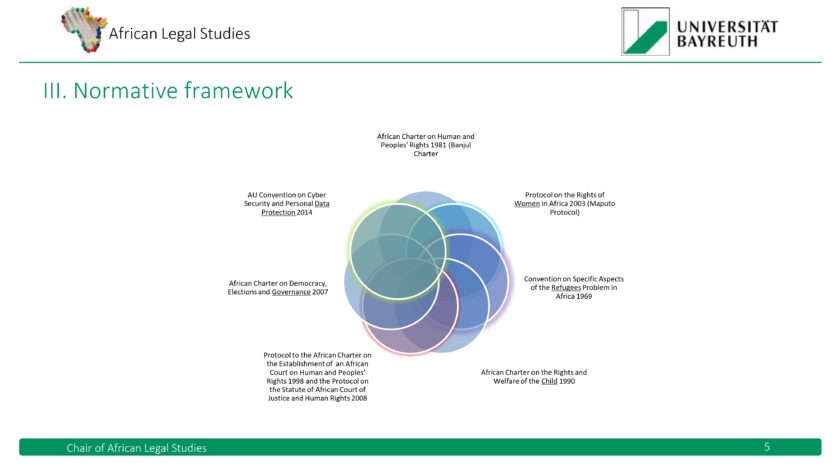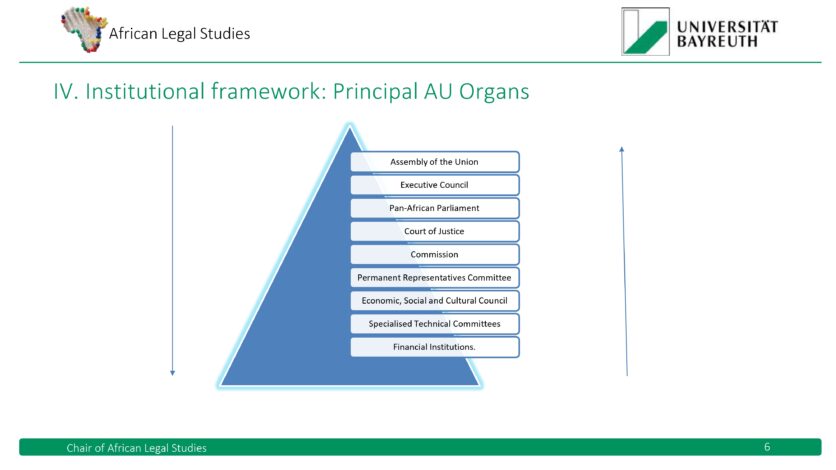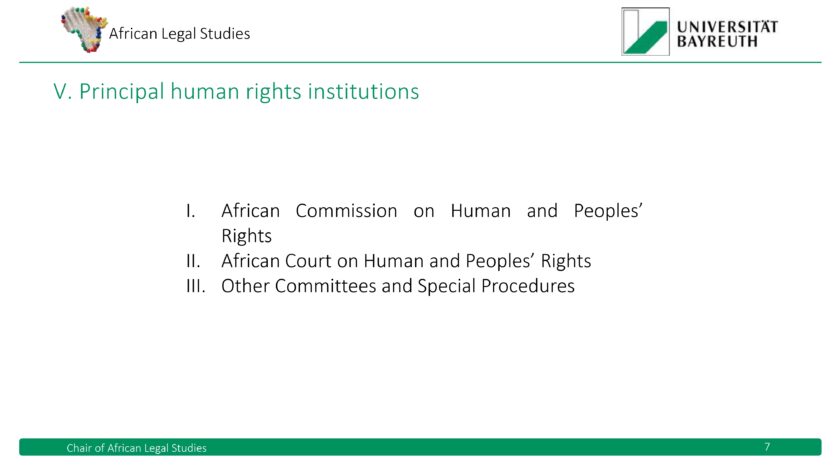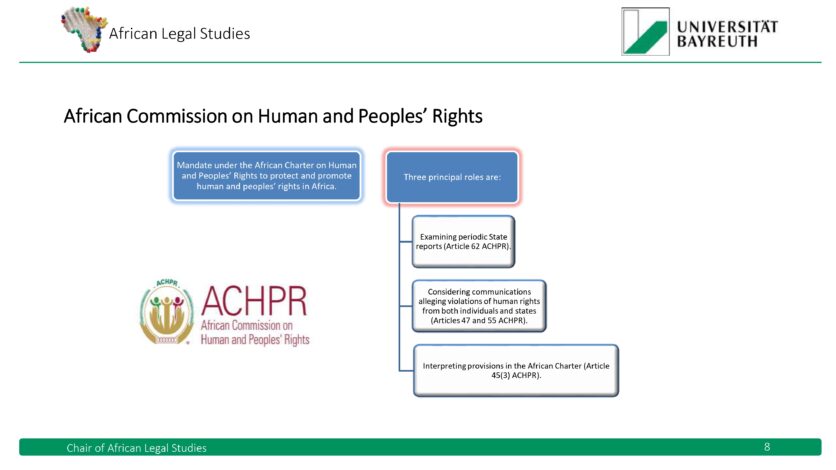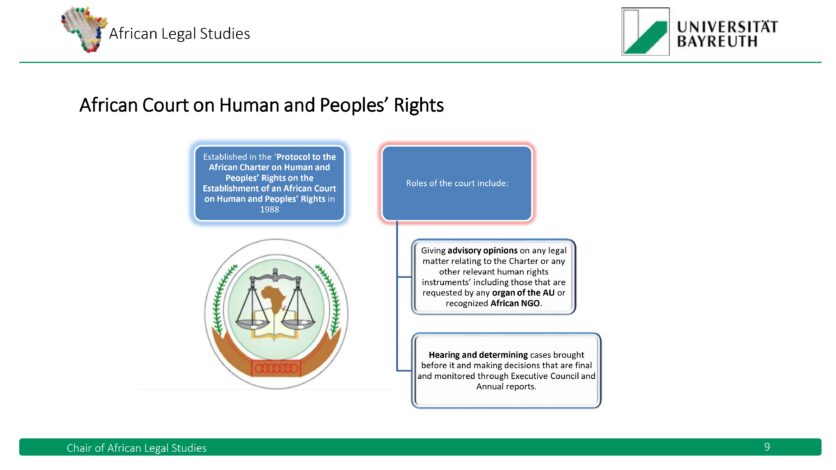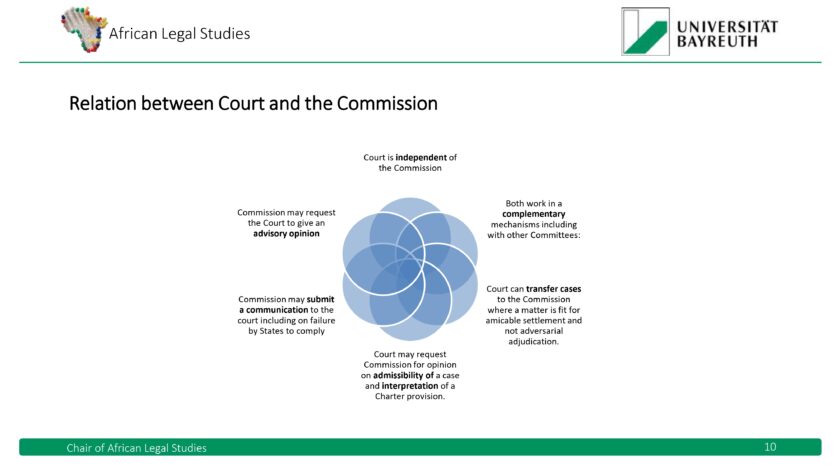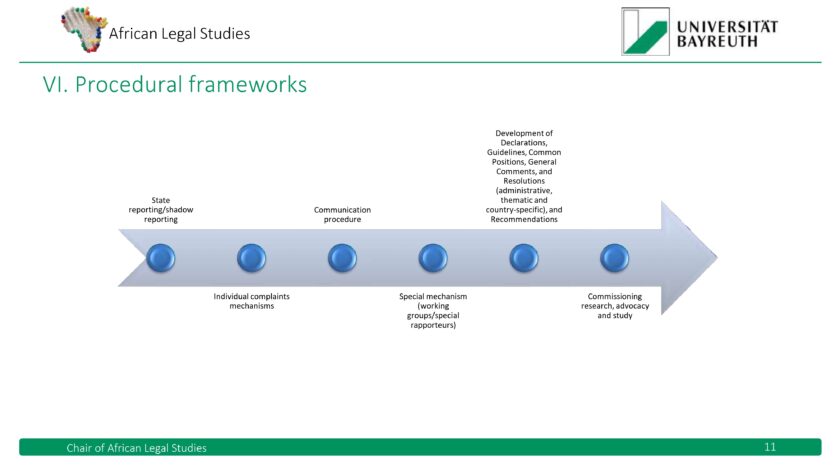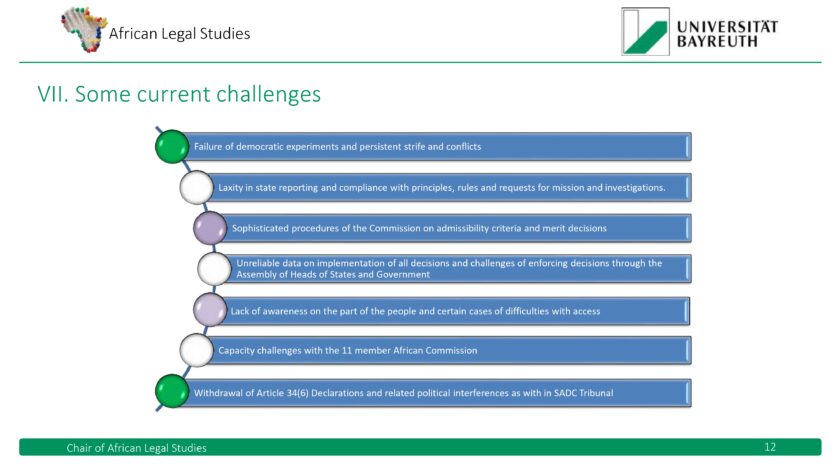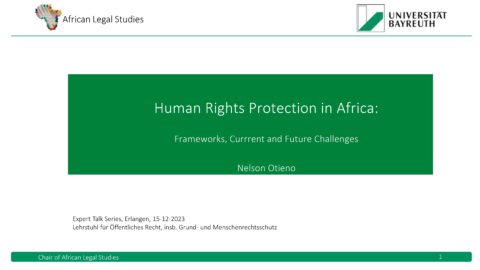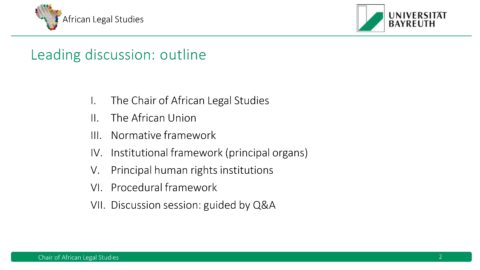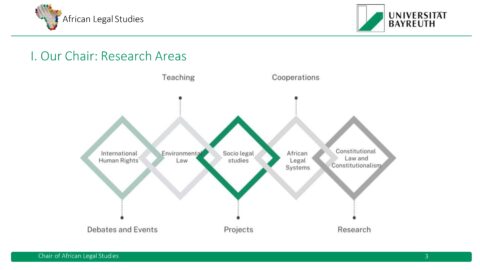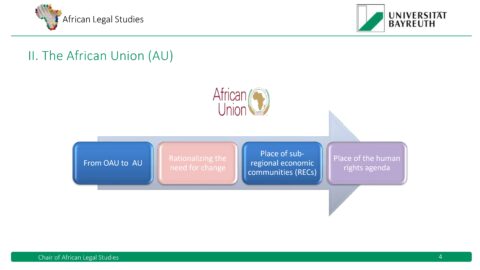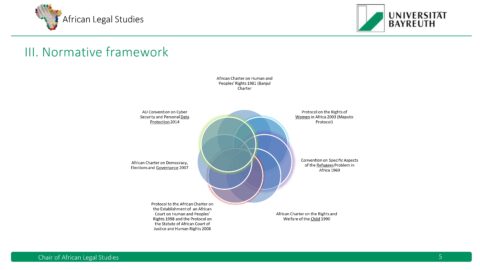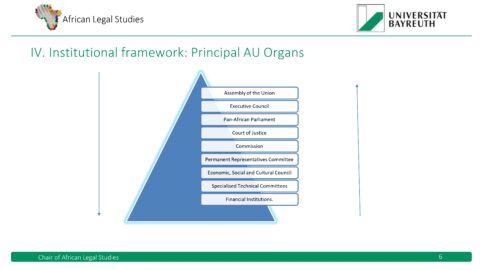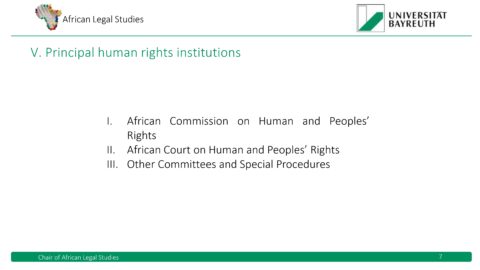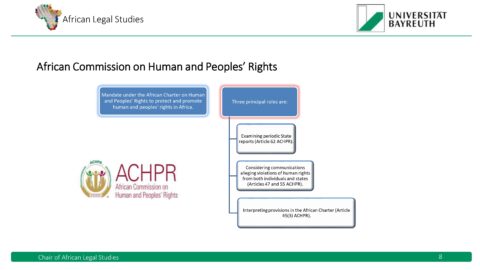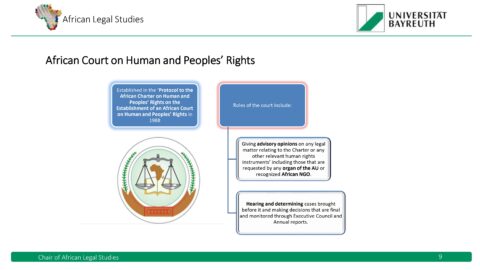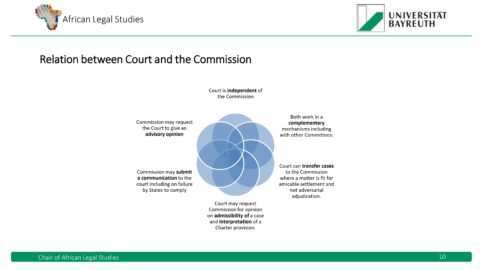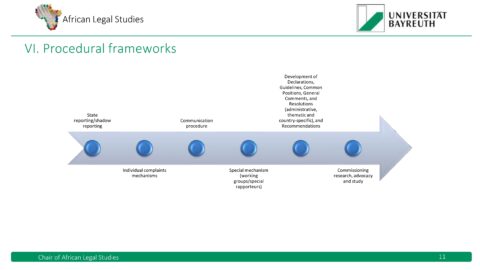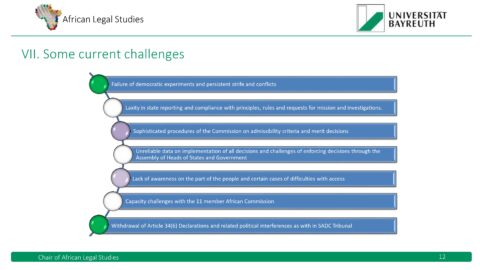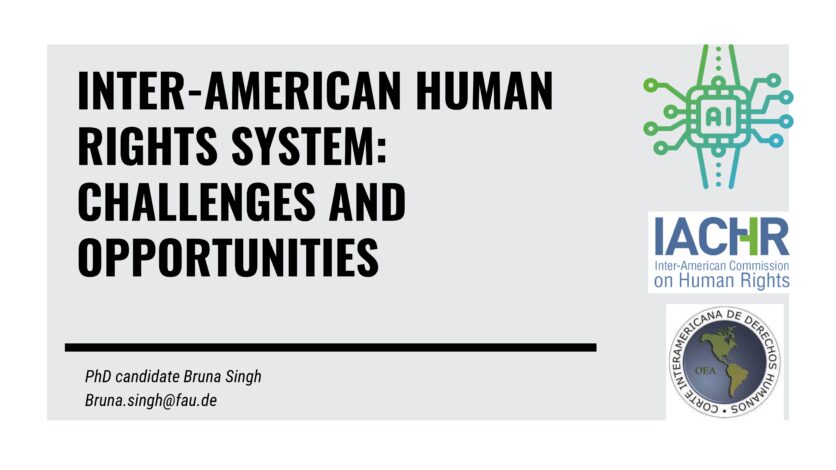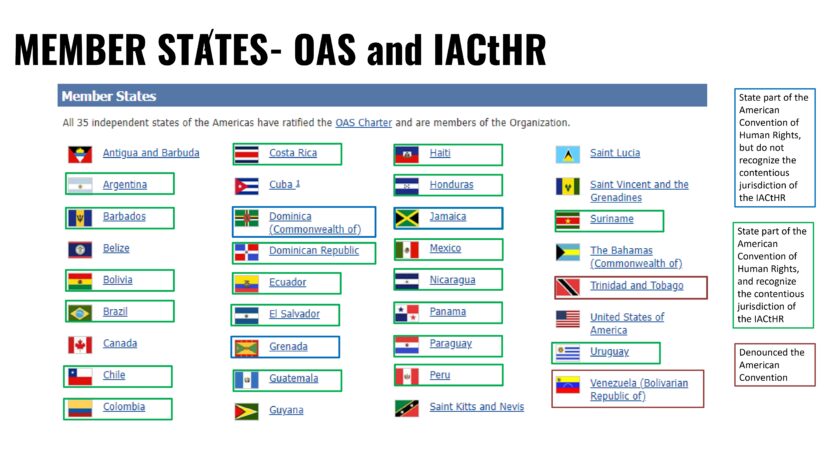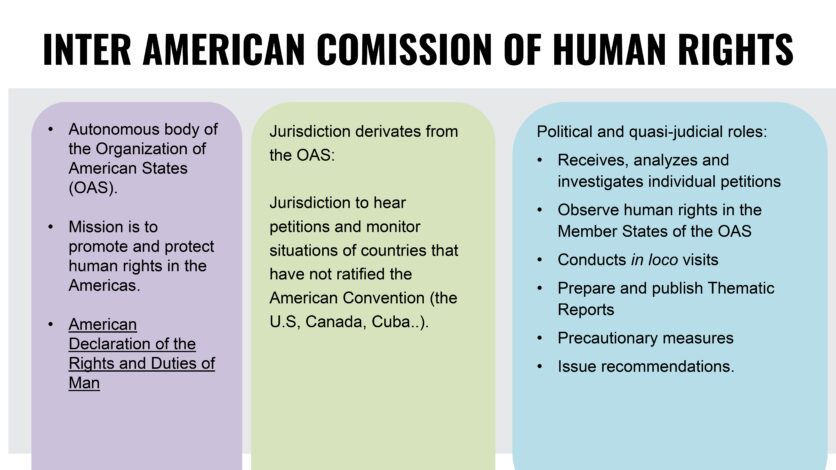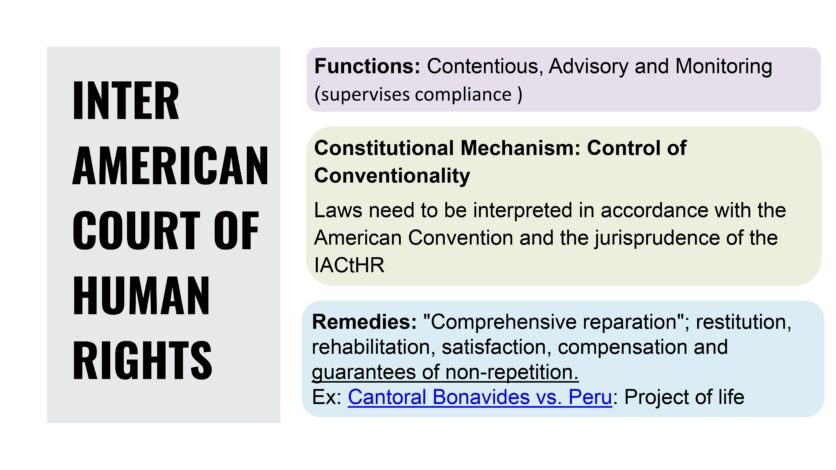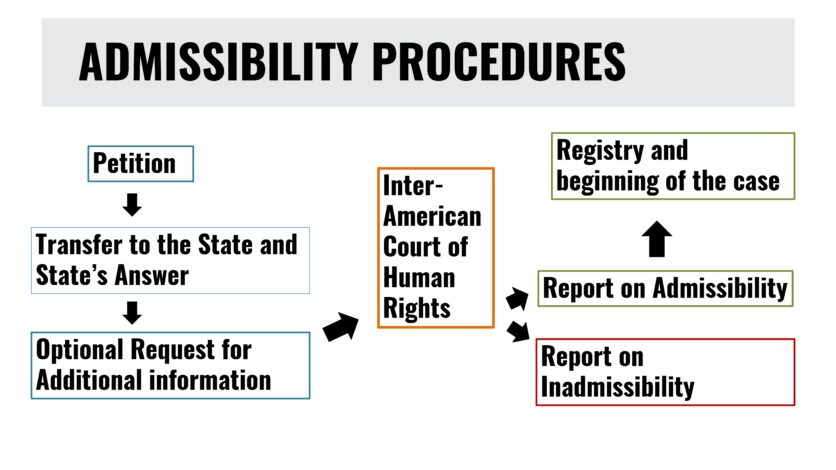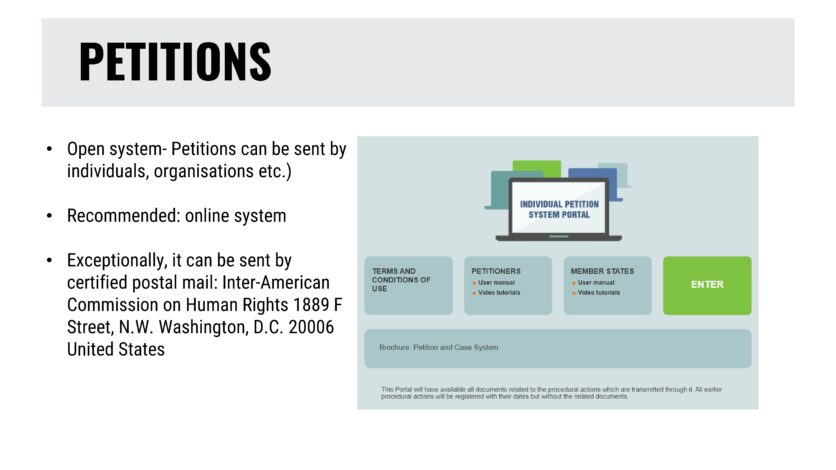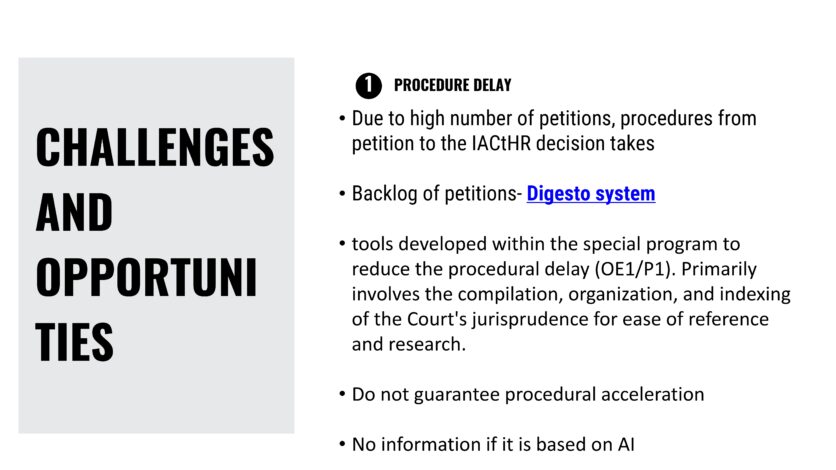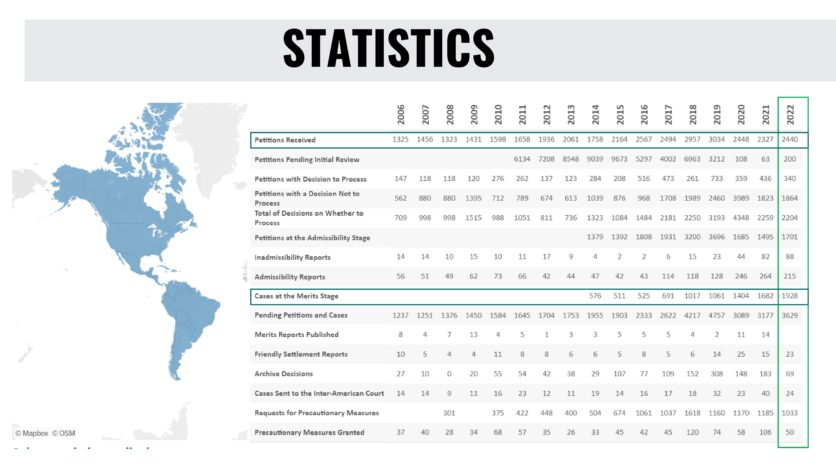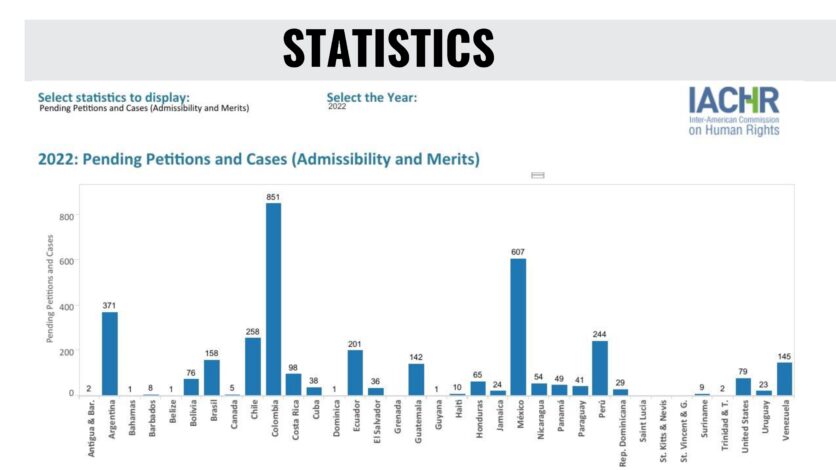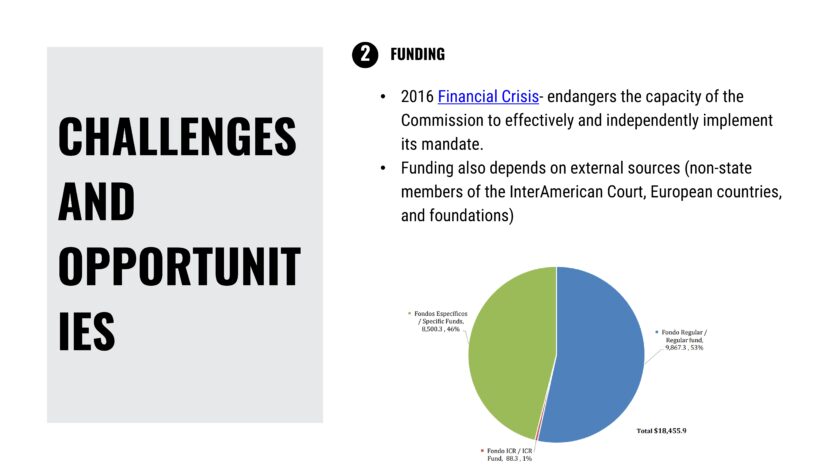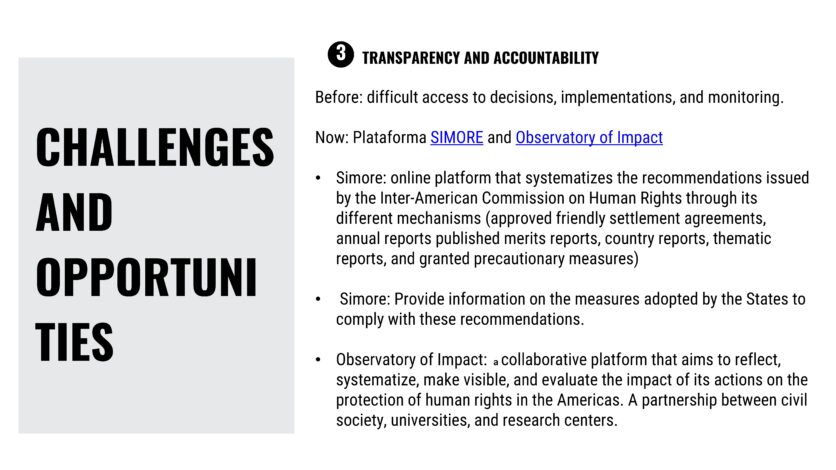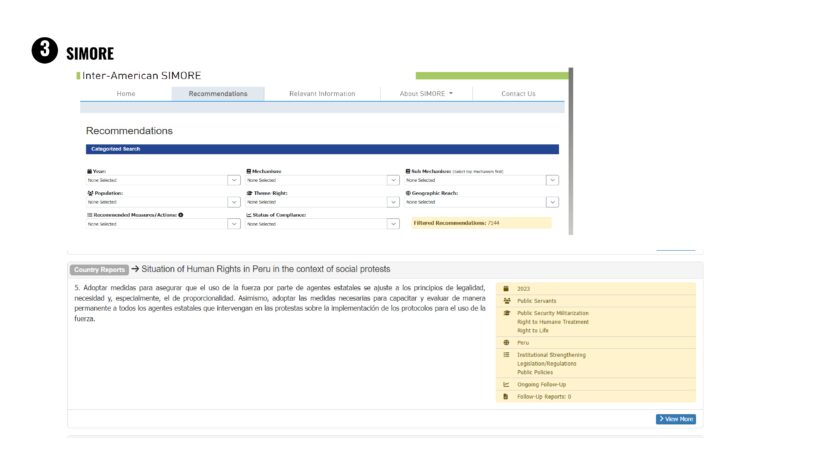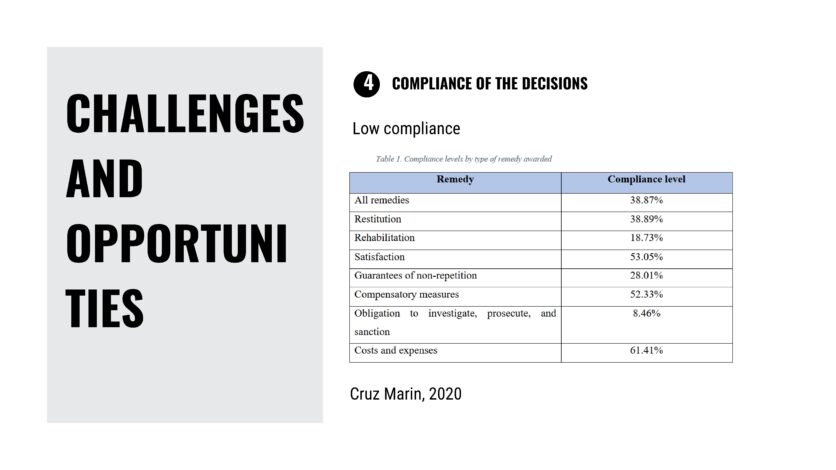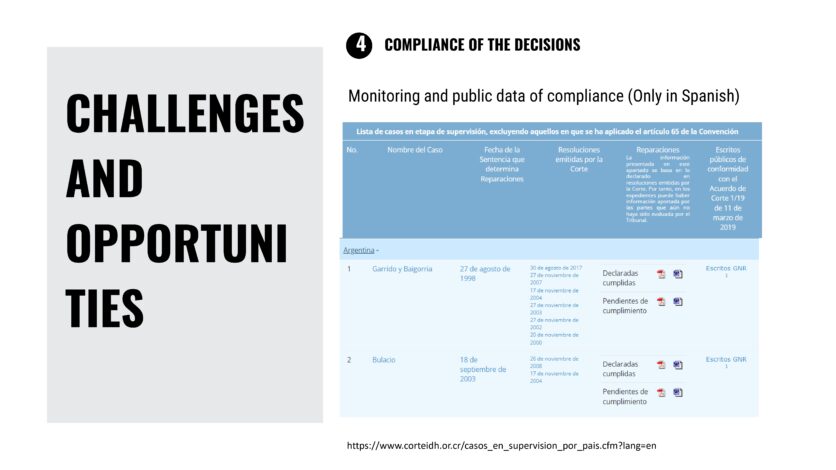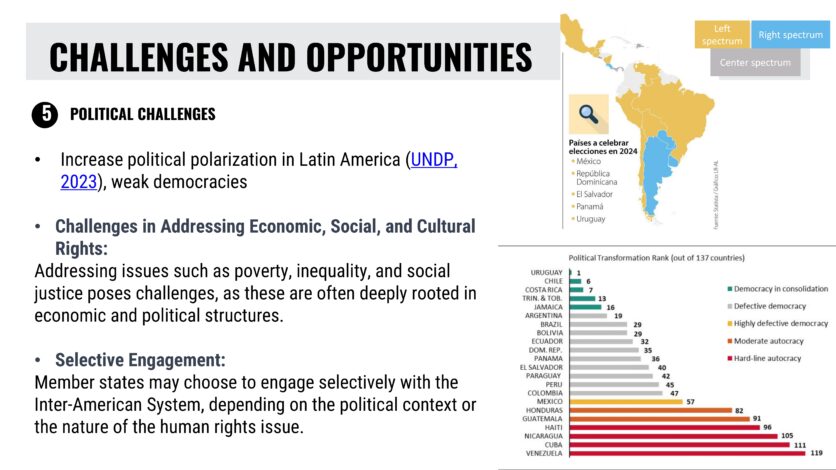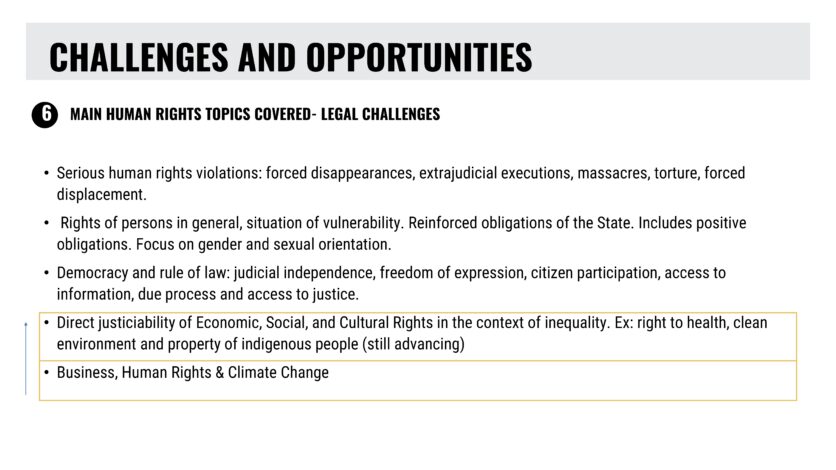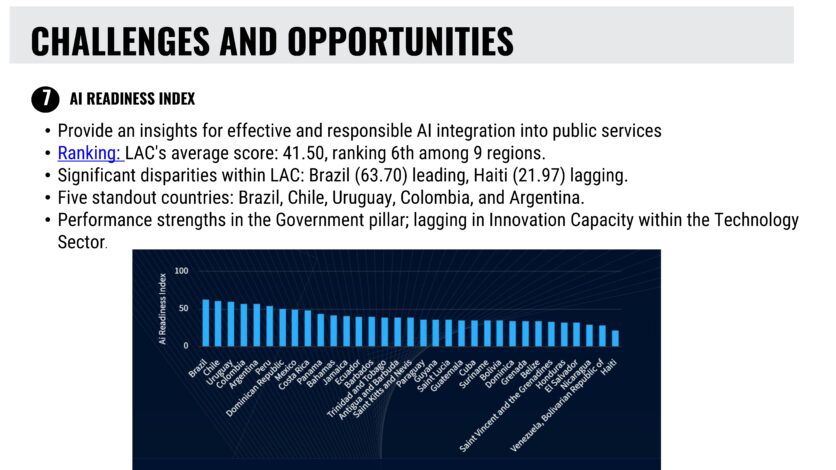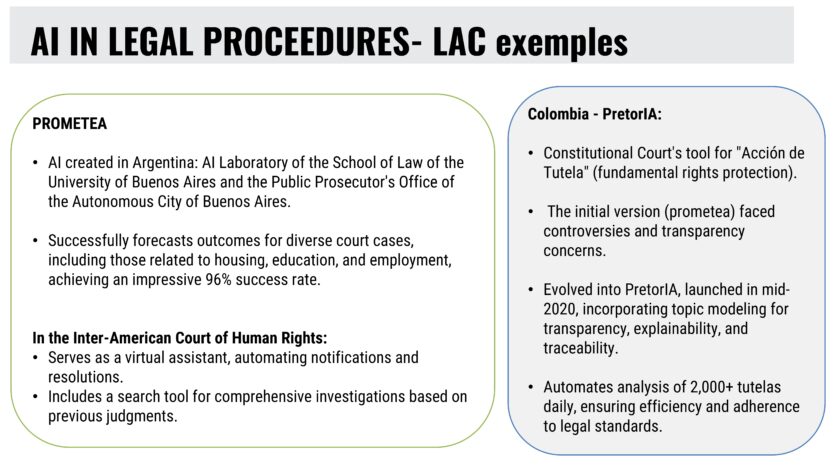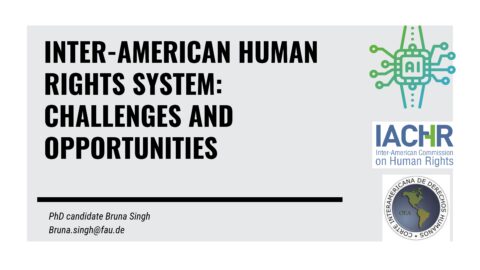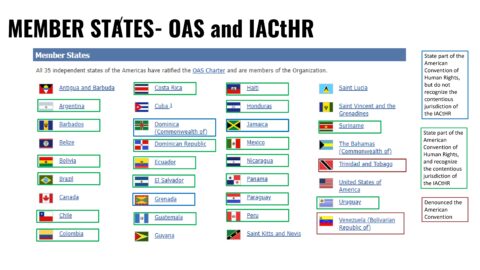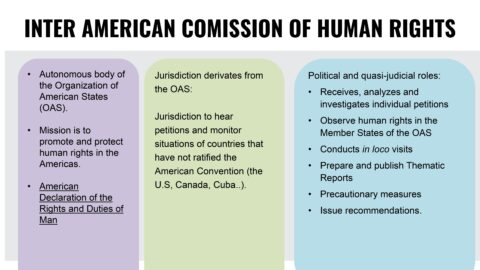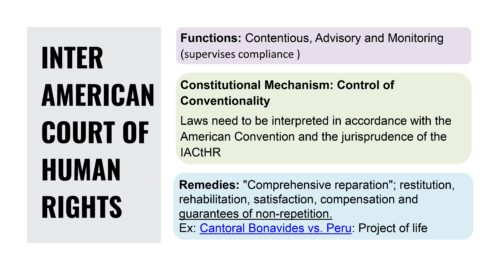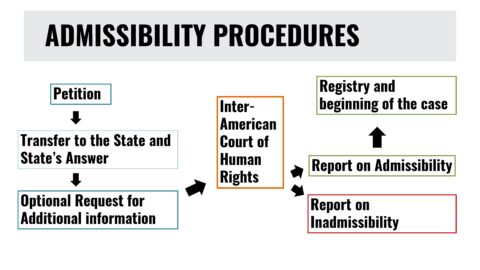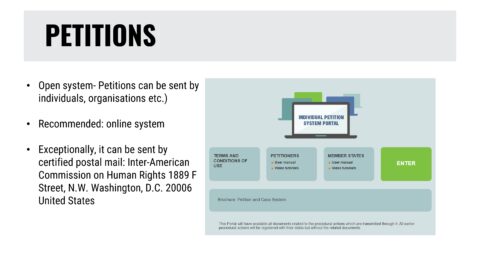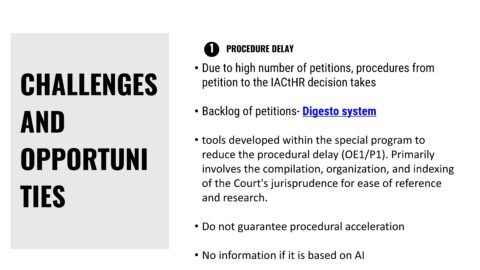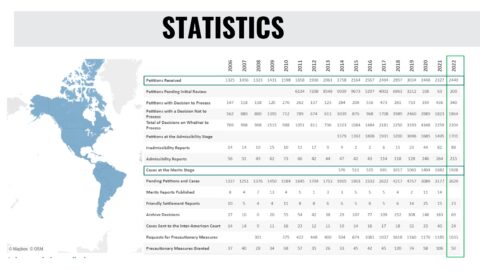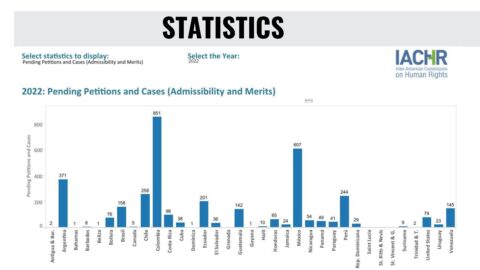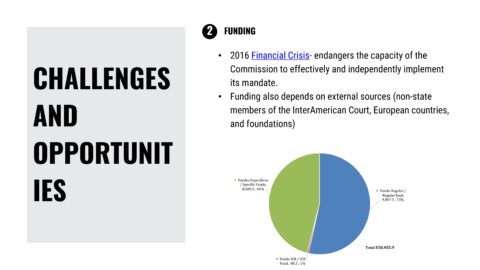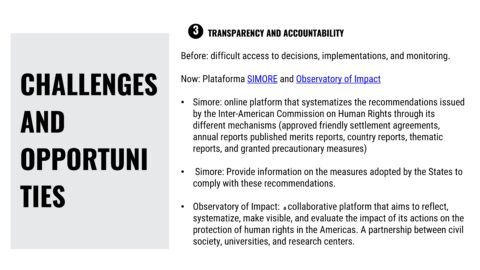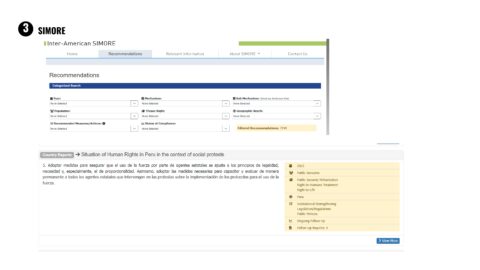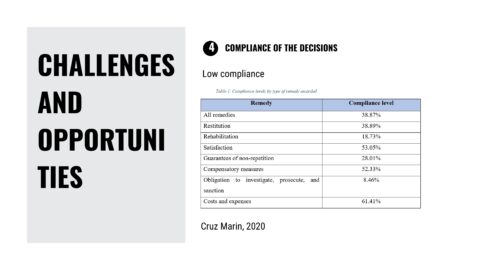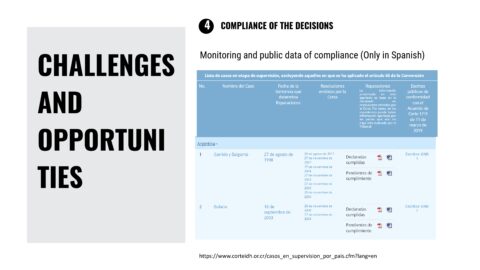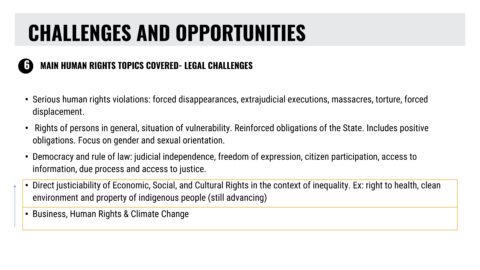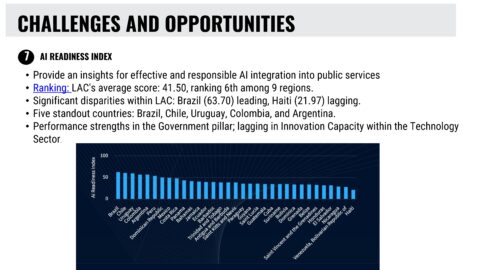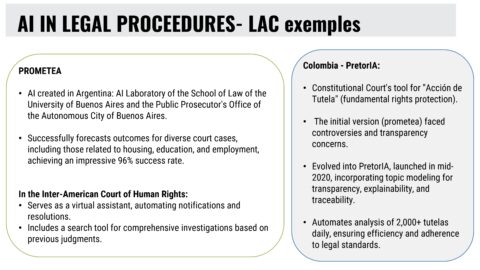„Artificial Intelligence as a Human Rights Chance or Challenge?“ – FAU Human Rights Talks (WiSe & SoSe 2023/2024)
Another exciting round of the „FAU Human Rights Talks“ took place successfully on 9 June during the CHREN Conference 2024. Three groups of motivated students had the opportunity to present their research to human rights experts and enter into following discussions. The leading question was: „Is artificial intelligence a human rights chance or challenge?“. We had the honour to exchange views with:
- Justice Dennis Dominic Adjei and Registrar Robert Eno (African Court on Human and Peoples’ Rights)
- Judge Verónica Gómez (Inter-American Court of Human Rights)
- Judge Tim Eicke (European Court of Human Rights)
Emma Sundt, a participant of the Human Rights Talks: „Artificial Intelligence as a Human Rights Chance or Challenge?“ shares her insights about the Talk’s Concept:
During the preparation phase, introductions were given about the different regional human rights systems:
The European Human Rights System – Presentation by Daniela Kolland:
The African Human Rights System – Presentation by Nelson Otieno:
The Inter-American Human Rights System – Presentation by Bruna Singh:
During the Expert Meetings, the participants discussed their leading questions with different experts.
Masha Medvedeva – What is explainability in the context of AI systems in the legal field, why is this principle relevant and how can we ensure that explainability is sustained?
Adebayo Okeowo – In your opinion, how should international human rights courts approach citizen media evidence as means of evidence, particularly in light of domestic legislation that might preclude its use during domestic proceedings?
Juan Gutierrez Rodriguez – Considering the potential limitations, could we safely entrust judges to rely on Large Language Models as decision making tools given their inherent biases and lack of accountability?
Faith Amatika-Omondi – Are states capable to effectively regulate the danger of deepfakes and can we ever trust in internet pictures for information as evidence?
Stefan Schäferling – What are the main human rights threats posed by governmental automated decision making and what regulatory measures can be taken to adress them?
Yvonne McDermott Rees – What are the unique benefits that using open source digital evidence can bring courts and accountability mechanisms, and what are the challenges to admissibility that OSI evidence can expect?
The last phase of the Human Rights Talks took place on 9 June 2024 at the CHREN Conference. There, the students first played their technical explaination videos and then discussed their research with Justice Dennis Dominic Adjei and Registrar Robert Eno (African Court on Human and Peoples’ Rights), Judge Verónica Gómez (Inter-American Court of Human Rights) and Judge Tim Eicke (European Court of Human Rights).
Video – AI in Government Decision Making:
Video – Large Language Models:
Video – User-generated Evidence in the Age of Generative AI:
